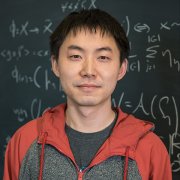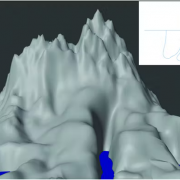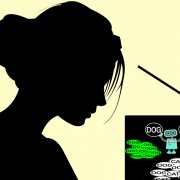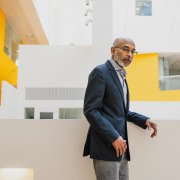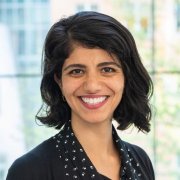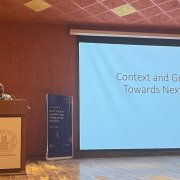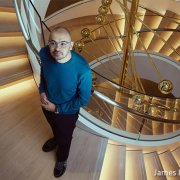March 21, 2023 - 4:00 pm
Singleton Auditorium (46-3002)
Chiyuan Zhang, Google
Abstract: Deep learning algorithms are well-known to have a propensity for fitting the training data very well and memorize idiosyncratic properties in the training examples. From a scientific perspective, understanding memorization in deep neural networks shed light on how those models generalize...
Researchers Crack Open Machine Learning's Black Box to Shine a Light on Generalization [hackster.io]
March 10, 2023 - 12:00 pm
Flying in the face of recent rival studies, these scientists point to generalization as key to order-of-magnitude performance gains
by Gareth Halfacree
Researchers from the Massachusetts Institute of Technology (MIT) and Brown University have taken steps to open up the "black box" of machine learning — and say that the key to success may lie in generalization.
"This study provides one of the first theoretical analyses covering optimization,...
March 8, 2023 - 3:30 pm
MIT researchers uncover the structural properties and dynamics of deep classifiers, offering novel explanations for optimization, generalization, and approximation in deep networks.
A new study from researchers at MIT and Brown University characterizes several properties that emerge during the training of deep classifiers, a type of artificial neural network commonly used for classification tasks such as image classification, speech recognition...
February 28, 2023 - 5:30 pm
It teamed up with biometrics research company MindProber to study its users.
By Charlotte Hu
Think about the music and podcasts you listen to, and how they affect your mood. If streaming audio content makes you happier, you’re not alone, and the proof is in the study data Spotify released today.
That finding comes courtesy of 426 free-tier Spotify users who volunteered to wear an electrodermal activity sensor on their palm any time they tuned in...
February 28, 2023 - 4:00 pm
McGovern Reading Room (46-5165)
Meenakshi Khosla (Kanwisher lab postdoc)
Abstract: Neuroscience is currently undergoing an explosion in the availability of large-scale brain activity data, so the major challenge no longer lies in data collection, but also in deriving understanding from this abundant stream of complex, high-dimensional, noisy data with methods that fully...
February 21, 2023 - 9:30 am
By unlocking the secrets of anesthesia, Professor Emery Brown could help shed light on brain diseases, hibernation, and possibly even human consciousness.
By Adam Piore
Last spring, Brown stepped down after 10 years as co-director of the Harvard-MIT Program in Health Sciences and Technology (HST), which trains clinician-scientists and engineers, to focus on creating a new joint research center between MIT and MGH. The center will use anesthesia...
February 14, 2023 - 4:00 pm
McGovern Reading Room (46-5165)
Akhilan Boopathy, MIT graduate student in the Fiete Lab
Abstract: The measure of a machine learning algorithm is the difficulty of the tasks it can perform, and sufficiently difficult tasks are critical drivers of strong machine learning models. However, quantifying the generalization difficulty of machine learning benchmarks has remained challenging....
February 7, 2023 - 4:00 pm
Singleton Auditorium (46-3002)
Leyla Isik, Johns Hopkins University
Leyla Isik is the Clare Boothe Luce Assistant Professor in the Department of Cognitive Science at Johns Hopkins University. Her research aims to answer the question of how humans extract complex information using a combination of human neuroimaging, intracranial recordings, machine learning, and...
February 6, 2023 - 2:45 pm
[translated by Google Translate]
With Alphafold, Deepmind revolutionized chemistry. The company is now working on competing with Chat-GPT, says the founder in an interview.
by Ruth Fulterer
If you wanted to nominate a polymath today, Demis Hassabis would be on the list of candidates. The 47-year-old is a candidate for the Nobel Prize in Chemistry thanks to his AI Alphafold, which predicts protein folding. And by then he had already had three...
February 1, 2023 - 2:45 pm
ChatGPT is in the spotlight, but it’s Whisper—OpenAI’s open-source speech-transcription program—that shows us where machine learning is going.
By James Somers
One day in late December, I downloaded a program called Whisper.cpp onto my laptop, hoping to use it to transcribe an interview I’d done. I fed it an audio file and, every few seconds, it produced one or two lines of eerily accurate transcript, writing down exactly what had been said with...
January 30, 2023 - 10:45 am
Indian Institute of Technology Jodhpur conducted NAiBS-2023 international conference from 26th to 28th January 2023. The conference aimed at bringing together researchers across domains for discussions on the common goal of designing AGI (Artificial General Intelligence) systems – drawing inspiration from individual sensorimotor computations leading to multimodal processes in the human brain. The conference also envisioned being of interest to a...
January 12, 2023 - 4:30 pm
Demis Hassabis stands halfway up a spiral staircase, surveying the cathedral he built. Behind him, light glints off the rungs of a golden helix rising up through the staircase’s airy well. The DNA sculpture, spanning three floors, is the centerpiece of DeepMind’s recently opened London headquarters. It’s an artistic representation of the code embedded in the nucleus of nearly every cell in the human body. “Although we work on making machines...
December 6, 2022 - 4:00 pm
McGovern Seminar Room (46-3189)
Diego Mendoza-Halliday, Research Scientist, McGovern Institute for Brain Research at MIT
In person and open to the MIT Community.
Abstract:
Visual attention and working memory are two different cognitive functions. However, because of their close relationship and interactions, it is often claimed that they share the same underlying neuronal mechanisms. Here, I will first describe...
Abstract:
Visual attention and working memory are two different cognitive functions. However, because of their close relationship and interactions, it is often claimed that they share the same underlying neuronal mechanisms. Here, I will first describe...
November 22, 2022 - 4:00 pm
Virtual
Margaret Livingstone, Harvard Medical School
Margaret Livingstone is the Takeda Professor of Neurobiology in the Blavatnik Institute of Neurobiology at Harvard Medical School. Livingstone has long been interested in how tuning properties of individual neurons can be clustered at a gross level in the brain. The lab began by looking at the...
November 17, 2022 - 12:30 pm
Society for Neuroscience honors BCS professor for breakthrough research modeling a component of the brain’s navigational system.
The Society for Neuroscience (SfN) has awarded the Swartz Prize for Theoretical and Computational Neuroscience to Ila Fiete, professor in the Department of Brain and Cognitive Sciences, associate member of the McGovern Institute for Brain Research, and director of the K. Lisa Yang Integrative Computational Neuroscience...

